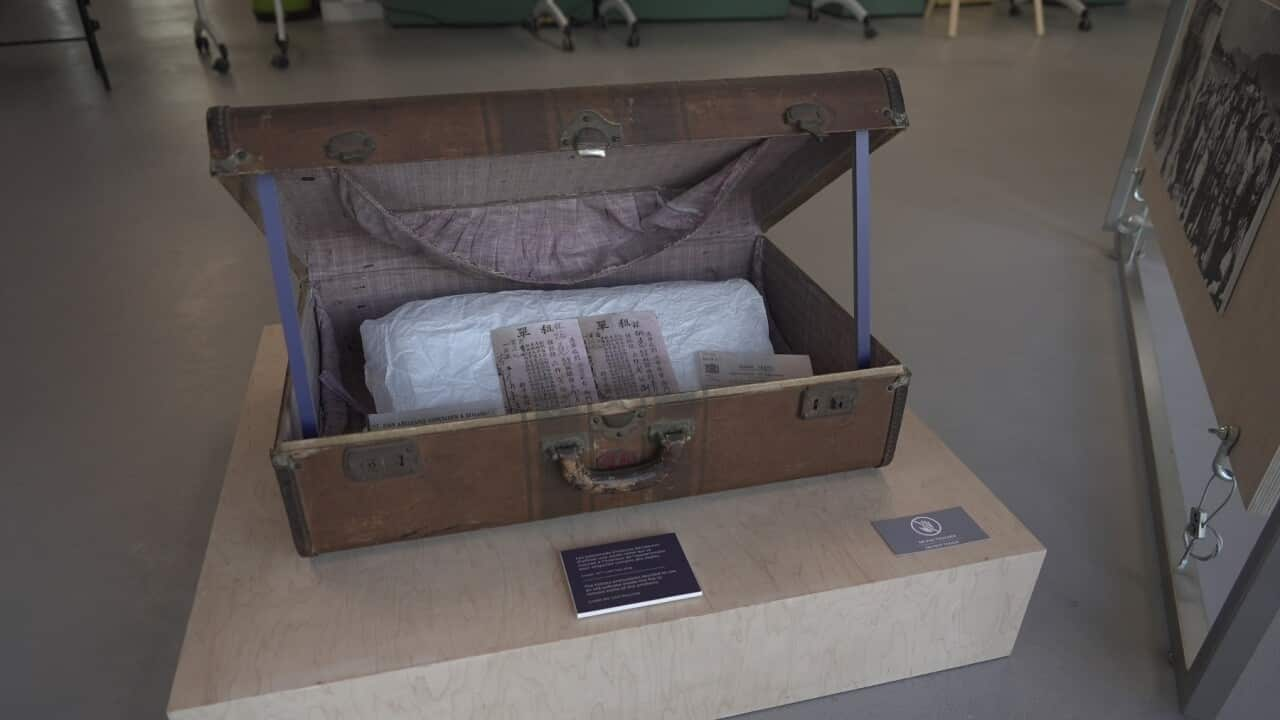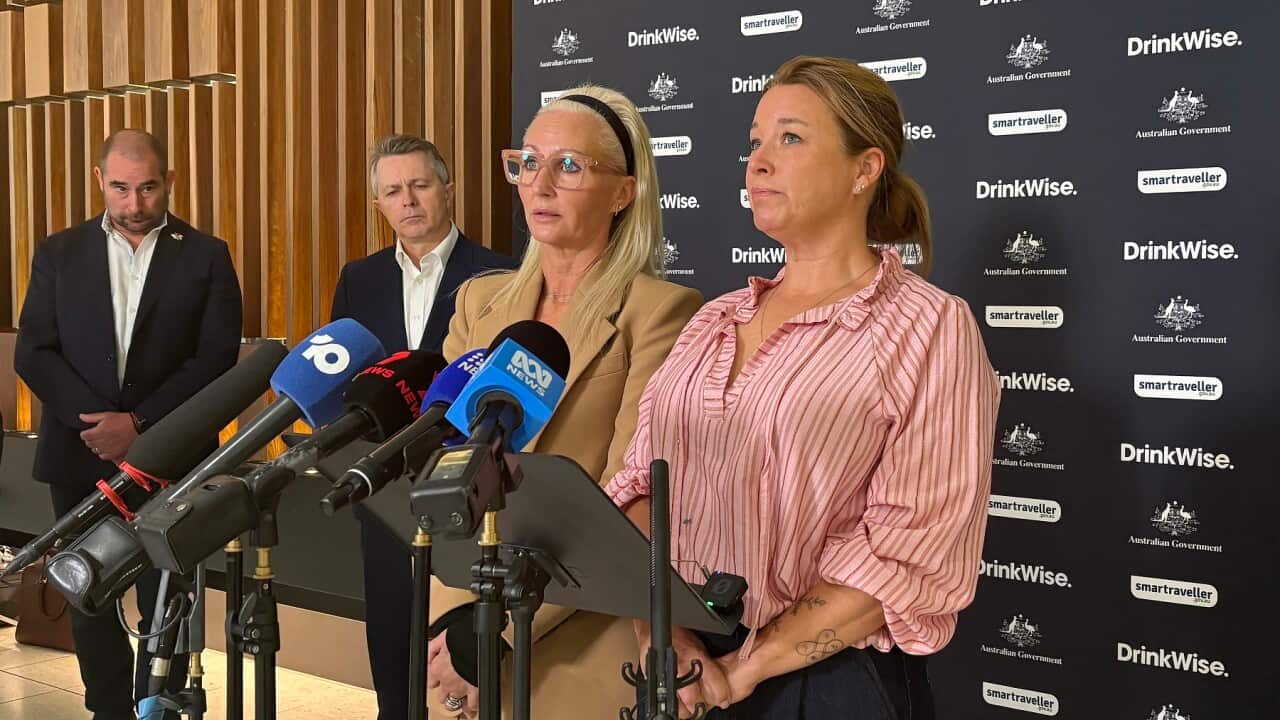Italiano
Mentre un numero crescente di adulti australiani ritarda le visite dentistiche di routine a causa dei costi, i dentisti australiani esortano i genitori a non commettere lo stesso errore con i propri figli.
In occasione della Settimana della salute dentale, l'Associazione dentale australiana afferma che ogni anno circa 1,5 milioni di bambini australiani non usufruiscono delle cure dentistiche gratuite.
In un sondaggio condotto su 25.000 adulti australiani, circa il 40% afferma che i due anni sono un'età appropriata per la prima visita dentistica di un bambino.
Il dottor Chris Sanzaro è il presidente dell'Associazione dentale australiana.
Secondo lui, i bambini dovrebbero iniziare a vedere un dentista quando spunta il primo dente.
"And a few people think it should be older than that. 20 to 30 per cent of people think three to four years of age is appropriate, but the recommendation from the association is that children are taken to the dentist at age one or before age one, or when the first tooth comes through into the mouth."
Un controllo e una pulizia di routine possono costare tra i 150 e i 300 dollari per un adulto e la ricerca mostra che circa 2 milioni di adulti australiani saltano o ritardano le visite dal dentista.
Tuttavia, mentre l'odontoiatria per gli adulti non è coperta da Medicare, il governo offre alle famiglie idonee fino a 1.132 dollari di cure dentistiche per i bambini ogni due anni.
Per poter beneficiare del Child Dental Benefit Schedule, i bambini devono avere meno di 18 anni, essere idonei a Medicare e avere un genitore o un tutore che riceve un sussidio governativo almeno una volta all'anno.
Poiché solo il 38% degli aventi diritto ne fa effettivamente richiesta, l'Associazione dentale australiana afferma che è importante che i genitori sappiano se ne hanno diritto e come accedervi.
Il dottor Sanzaro afferma che ritardare le cure per i bambini riduce le loro opzioni di trattamento.
"Children who attend the dentist early, we can find the holes in their teeth. If there's any decay developing, we can find that much earlier when it's smaller. When they're really small, that's a reversible condition. And when they're still quite small, that's something that's relatively easy to fix with fillings. [The] Problem with waiting for children to get to the dentist [is that] when they're experiencing pain or discomfort [it] is often [because] those holes are so deep into the teeth. There's much less reduced options for treatment, including the need to potentially extract teeth. And that's not a fun experience for kids or for the dentist or parents. So it's much easier and better to get the kids in earlier when we can find these problems before they develop into something larger."
I dati rivelano che tra il 2018 e il 2022 i bambini delle First Nations hanno avuto accesso al programma a tassi costantemente inferiori rispetto ai bambini non indigeni.
La scarsa conoscenza del programma è uno dei fattori chiave del basso tasso di adesione, ma non è l'unico.
Abe Ropitini è il direttore esecutivo di Population Health presso il VACCHO, Victorian Aboriginal Community Controlled Health Organisation.
Ropitini ha dichiarato a SBS che ci sono due questioni chiave che rendono il programma inadeguato per le popolazioni delle First Nations.
"One is that regardless of the fact that we have the scheme, there is an overall lack of choice that Aboriginal and Torres Strait Islander families have in terms of getting access to culturally safe oral health and dental health services... So if you don't have a choice of provider that you and your family consider to be acceptable, then you won't have access to services and you won't ever utilise the scheme that's available to you."
Oltre alla mancanza di servizi culturalmente sicuri, Ropitini sostiene che non dovrebbe essere compito delle famiglie cercare di capire programmi di finanziamento complessi per accedere all'assistenza sanitaria di base.
"It should really be simplified. It should be made more accessible in terms of understanding what your entitlements are, being able to have priority access to things without having to go into your records on how much you've been billed under that scheme in the past, whether your entitlements have renewed, whether or not you can still draw down from a particular budget or whether you're even eligible for it."
Il dottor Madhan Balasubramanian è senior lecturer di Gestione dell'assistenza sanitaria presso la Flinders University.
Nella sua ricerca ha studiato il motivo per cui le famiglie provenienti da contesti culturalmente e linguisticamente diversi sperimentano disuguaglianze diffuse nelle cure dentistiche.
A suo avviso, le ragioni per cui questo gruppo demografico di persone non va dal dentista sono molteplici.
"So what we actually found out was [that] in addition to cost is also confidence in quality care. So how confident are migrant groups in terms of available dental care services over here, that is an issue. Even greater is a confusing healthcare system for them. But they have to navigate through the different loops of the healthcare system to understand how to actually avail care and considering dental care, a large proportion of it is offered in private services for them to really understand how to actually use different benefits schemes. And also costs is a barrier for them as well. Public system, they have a big waiting list for them to be eligible they would need to meet certain criteria."
Avere denti e gengive sani ha un impatto che va oltre il semplice contenuto della bocca.
L'igiene orale e la salute dentale sono essenziali per il nostro benessere, sia mentale che fisico.
Un suggerimento chiave dato sia dal dottor Balasubramanian che da Ropitini è stato quello di integrare meglio l'odontoiatria nel sistema sanitario primario.
"Primary healthcare is extremely vital in migrants, who often go to GPs, GP clinics, doctors as the primary point of of consultation. So that's been that gateway to the healthcare system in Australia. So dental providers need to collaborate more actively with GPs, they need to collaborate more actively with other primary healthcare providers."
Denti mancanti o cariati possono avere un impatto sull'autostima di una persona e, secondo alcuni studi, persino ridurre le sue prospettive di lavoro in ruoli a contatto con i clienti.
Secondo Ropitini, l'importanza della salute orale non può essere sottovalutata.
"So it reflects whether you have access to nutrition, whether you have access to a balanced diet, whether you are therefore going to be healthy in other ways. So oral and dental health care is essential and fundamental to everything in your broader health and wellbeing. And it is madness that the system is separated, doesn't integrate, is culturally unsafe, and the funding landscape is over complicated for families impossible to navigate. I'm not surprised at all that we have seen, the outcomes that we are seeing at the moment. Something's got to be done."
Inglese
As an increasing number of Australian adults are delaying routine dental checkups due to costs, Australian dentists are urging parents not to make the same mistake with their kids.
This Dental Health Week, the Australian Dental Association says that around 1.5 million Australian kids are missing out on free dental care every year.
In a survey of 25,000 Australian adults, around 40 per cent say two is an appropriate age for a childs first dental visit.
Dr Chris Sanzaro is the President of the Australian Dental Association.
He says children should start seeing a dentist when their first tooth comes through.
"And a few people think it should be older than that. 20 to 30 per cent of people think three to four years of age is appropriate, but the recommendation from the association is that children are taken to the dentist at age one or before age one, or when the first tooth comes through into the mouth."
A routine checkup and clean can cost between $150 and $300 dollars for an adult, and research shows that around 2 million Australian adults are skipping or delaying dentist checkups.
But, while dental for adults is not covered by Medicare, the government does offer eligible families up to $1,132 in dental care for children every two years.
To be eligible for the Child Dental Benefit Schedule, children must be 17 or younger, eligible for Medicare, and have one parent or guardian receiving a government payment at least once that year.
With only 38 per cent of those eligible actually claiming it, the Australian Dental Association says it's important that parents know if they're eligible and how to access it.
Dr Sanzaro says delaying treatment for children reduces their options for treatment.
"Children who attend the dentist early, we can find the holes in their teeth. If there's any decay developing, we can find that much earlier when it's smaller. When they're really small, that's a reversible condition. And when they're still quite small, that's something that's relatively easy to fix with fillings. [The] Problem with waiting for children to get to the dentist [is that] when they're experiencing pain or discomfort [it] is often [because] those holes are so deep into the teeth. There's much less reduced options for treatment, including the need to potentially extract teeth. And that's not a fun experience for kids or for the dentist or parents. So it's much easier and better to get the kids in earlier when we can find these problems before they develop into something larger."
Between 2018 and 2022, the data reveals that First Nations children were accessing the scheme at consistently lower rates than non-Indigenous children.
And while a lack of awareness around the program is one key factor in its low uptake rate, it's not the only one.
Abe Ropitini is the Executive Director of Population Health at VACCHO, or the Victorian Aboriginal Community Controlled Health Organisation.
He has told SBS that there are two key issues that make the scheme inadequate for First Nations people.
"One is that regardless of the fact that we have the scheme, there is an overall lack of choice that Aboriginal and Torres Strait Islander families have in terms of getting access to culturally safe oral health and dental health services... So if you don't have a choice of provider that you and your family consider to be acceptable, then you won't have access to services and you won't ever utilise the scheme that's available to you."
As well as the lack of culturally safe services, Mr Ropitini says it should not be on families to navigate complex funding programs in order to access primary healthcare.
"It should really be simplified. It should be made more accessible in terms of understanding what your entitlements are, being able to have priority access to things without having to go into your records on how much you've been billed under that scheme in the past, whether your entitlements have renewed, whether or not you can still draw down from a particular budget or whether you're even eligible for it."
Dr Madhan Balasubramanian is a Senior Lecturer in Health Care Management at Flinders University.
In his research, he's studied why families from culturally and linguistically diverse backgrounds experience widespread inequalities in dental care.
He says there are a variety of reasons this demographic of people might not be going to the dentist.
"So what we actually found out was in addition to cost is also confidence in quality care. So how confident are migrant groups in terms of availing dental care services over here, that is an issue. Even greater is a confusing healthcare system for them. But they have to navigate through the different loops of the healthcare system to understand how to actually avail care and considering dental care, a large proportion of it is offered in private services for them to really understand how to actually use different benefits schemes. And also costs is a barrier for them as well. Public system, they have a big waiting list for them to be eligible they would need to meet certain criteria."
Having healthy teeth and gums impacts more than just what's in your mouth.
Oral hygiene and dental health is essential to our wellbeing, both mental and physical.
One key suggestion given by both Dr Balasubramanian and Mr Ropitini was to better integrate dental into the primary health system.
"Primary healthcare is extremely vital in migrants, who often go to GPs, GP clinics, doctors as the primary point of of consultation. So that's been that gateway to the healthcare system in Australia. So dental providers need to collaborate more actively with GPs, they need to collaborate more actively with other primary healthcare providers."
Things like missing or decayed teeth can impact a person’s self-esteem and according to some studies, even lower their employment prospects in customer facing roles.
Mr Ropitini says the importance of oral health can't be understated.
"So it reflects whether you have access to nutrition, whether you have access to a balanced diet, whether you are therefore going to be healthy in other ways. So oral and dental health care is essential and fundamental to everything in your broader health and wellbeing. And it is madness that the system is separated, doesn't integrate, is culturally unsafe, and the funding landscape is over complicated for families impossible to navigate. I'm not surprised at all that we have seen, the outcomes that we are seeing at the moment. Something's got to be done."











